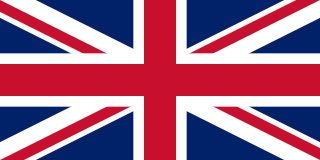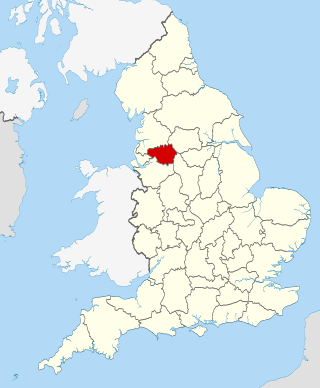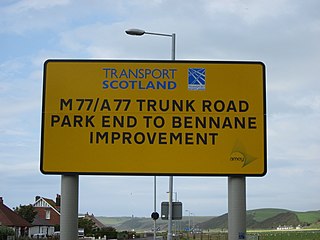
The United Kingdom of Great Britain and Northern Ireland, commonly known as the United Kingdom (UK) or Britain, is a country in Northwestern Europe, off the north-western coast of the continental mainland. It comprises England, Scotland, Wales, and Northern Ireland. It includes the island of Great Britain, the north-eastern part of the island of Ireland, and most of the smaller islands within the British Isles. Northern Ireland shares a land border with the Republic of Ireland; otherwise, the United Kingdom is surrounded by the Atlantic Ocean, the North Sea, the English Channel, the Celtic Sea, and the Irish Sea. The total area of the United Kingdom is 94,060 square miles (243,610 km2), with an estimated 2022 population of nearly 67 million people.

The mayor of London is the chief executive of the Greater London Authority. The role was created in 2000 after the Greater London devolution referendum in 1998, and was the first directly elected mayor in the United Kingdom.
The British Transport Commission (BTC) was created by Clement Attlee's post-war Labour government as a part of its nationalisation programme, to oversee railways, canals and road freight transport in Great Britain. Its general duty under the Transport Act 1947 was to provide an efficient, adequate, economical and properly integrated system of public inland transport and port facilities within Great Britain for passengers and goods, excluding transport by air.

The Civil Aviation Authority (CAA) is the statutory corporation which oversees and regulates all aspects of civil aviation in the United Kingdom. Its areas of responsibility include:

Buses have been used as a mode of public transport in London since 1829, when George Shillibeer started operating a horse-drawn omnibus service from Paddington to the City of London. In the decades since their introduction, the red London bus has become a symbol of the city.

Transport for Greater Manchester (TfGM) is a local government body responsible for co-ordinating transport services throughout Greater Manchester in North West England. It is an executive arm of the Greater Manchester Combined Authority (GMCA), the city region's administrative authority. The strategies and policies of Transport for Greater Manchester are set by the GMCA and its Greater Manchester Transport Committee (GMTC). The committee is made up of 33 councillors appointed from the ten Greater Manchester boroughs, as well as the Mayor of Greater Manchester.
In the United Kingdom, public holidays are days on which most businesses and non-essential services are closed. Many retail businesses do open on some of the public holidays. There are restrictions on trading on Sundays, Easter Day and Christmas Day in England and Wales and on New Year's Day and Christmas Day in Scotland. Public holidays defined by statute are called bank holidays, but this term can also be used to include common law holidays, which are held by convention. The term "public holidays" can refer exclusively to common law holidays.

The transport system in Scotland is generally well-developed. The Scottish Parliament has control over most elements of transport policy within Scotland, with the Cabinet Secretary for Transport, Net Zero and Just Transition holding portfolio responsibility within the Scottish Government. Transport Scotland is the Executive Agency responsible for the Scottish transport network.

The National Bus Company (NBC) was a nationalised bus company that operated in England and Wales between 1969 and 1988. NBC did not run buses itself, but was the owner of a number of regional subsidiary bus operating companies.

The Transport Act 1968 was an act of the Parliament of the United Kingdom. The main provisions made changes to the structure of nationally owned bus companies, created passenger transport authorities and executives to take over public transport in large conurbations.
London Regional Transport (LRT) was the organisation responsible for most of the public transport network in London, England, between 1984 and 2000. In common with all London transport authorities from 1933 to 2000, the public name and operational brand of the organisation was London Transport from 1989, but until then it traded as LRT. This policy was reversed after the appointment of Sir Wilfrid Newton in 1989, who also abolished the recently devised LRT logo and restored the traditional roundel.
Buses are the most widespread and most commonly used form of public transport in the United Kingdom. In Great Britain, bus transport is owned and governed by private sector companies, except in Greater London. If a socially desirable service cannot be economically operated without a subsidy, then local councils can support bus companies to provide the service, often after an open competitive tendering exercise. In Northern Ireland, bus services are publicly owned, governed and delivered, as is the case in the Republic of Ireland.

The privatisation of London bus services was the process of the transfer of operation of buses in London from public bodies to private companies.

The following outline is provided as an overview of and topical guide to the United Kingdom:

The United Kingdom has a number of intercity coach services.

The trolleybus system in Manchester, England, opened on 1 March 1938, and gradually replaced certain routes of the Manchester tramway network. Manchester was a belated convert to trolleybuses having already started a programme of tram to diesel bus conversion in the mid-1930s and this, overall, continued to be the preferred option for tram conversion that was completed in 1949.

In the United Kingdom, devolution is the Parliament of the United Kingdom's statutory granting of a greater level of self-government to the Scottish Parliament, the Senedd, the Northern Ireland Assembly and the London Assembly and to their associated executive bodies the Scottish Government, the Welsh Government, the Northern Ireland Executive and in England, the Greater London Authority and combined authorities.

The Teesside trolleybus system once served the conurbation of Teesside, in the North East of England. Opened on 8 November 1919, it was unusual in being a completely new system that was not replacing any previously operating tramway network.

Asquith Camile Xavier was a West Indian-born Briton who ended a colour bar at British Railways in London by fighting to become the first non-white train guard at Euston railway station in 1966. Trevor Phillips, when chairman of the Commission for Racial Equality, said in 2006: "Asquith's stand against discrimination brought to light the inadequacy of early race discrimination laws and persistent widespread discrimination faced by ethnic minorities." A plaque at the station commemorates his achievement.

The London Transport Act 1969 was a local act of the United Kingdom Parliament which concerned the London Transport Board. It was passed on the same day as the Transport (London) Act 1969, which provided for the abolition of the board and the transfer of its functions to London Transport Executive under the auspices of the Greater London Council.















